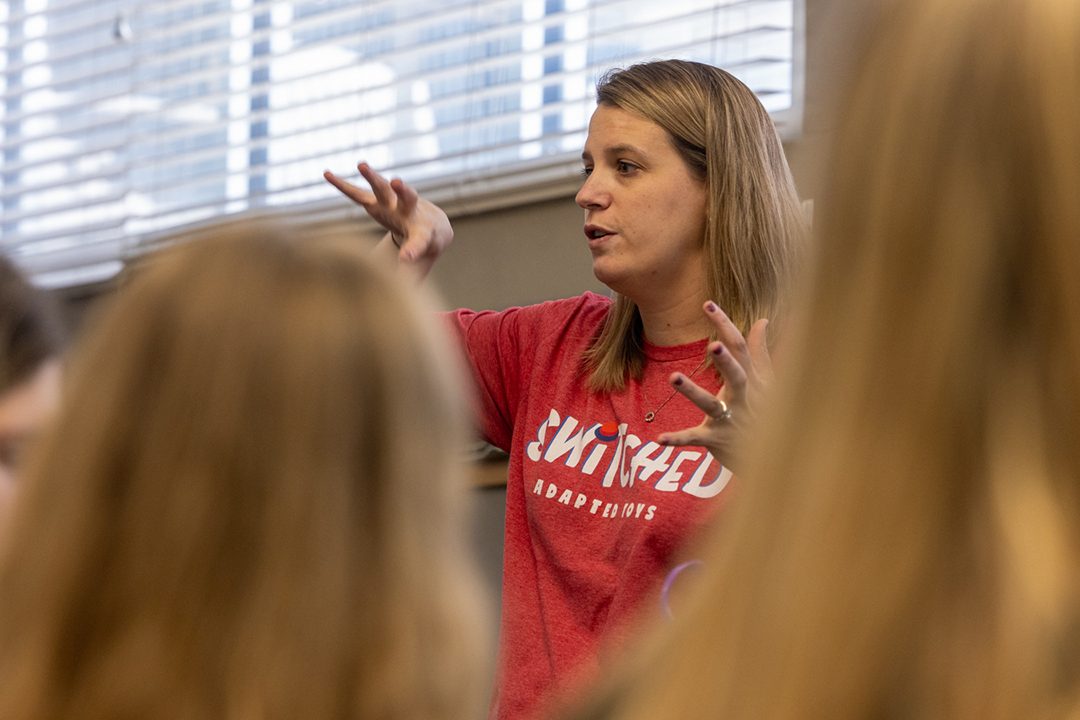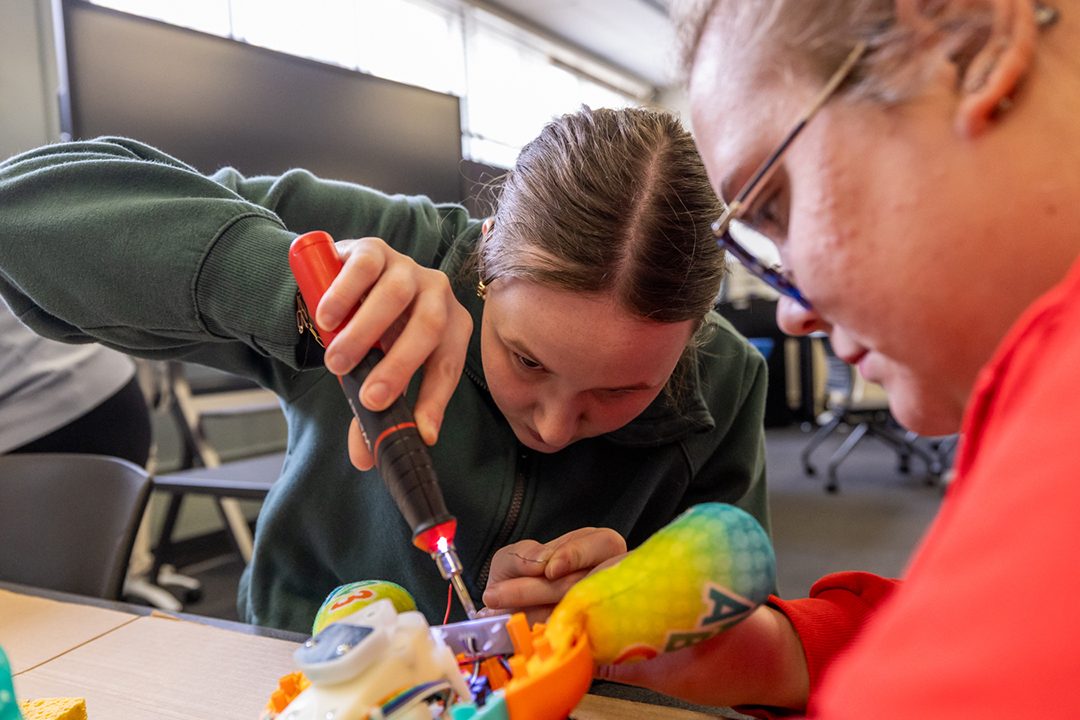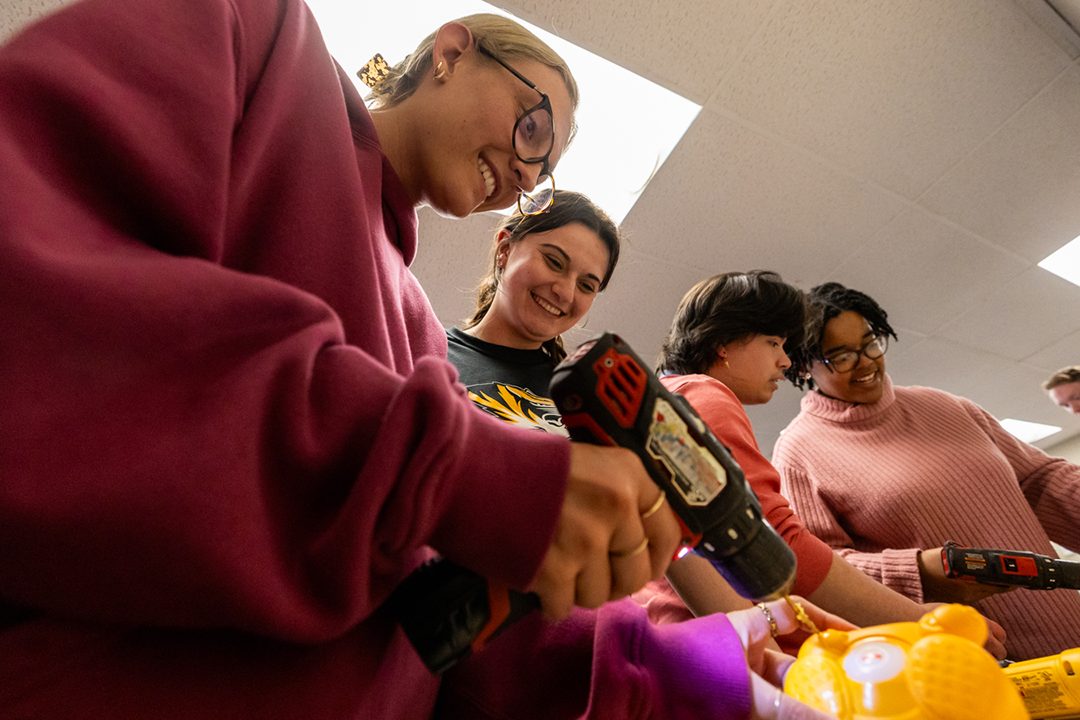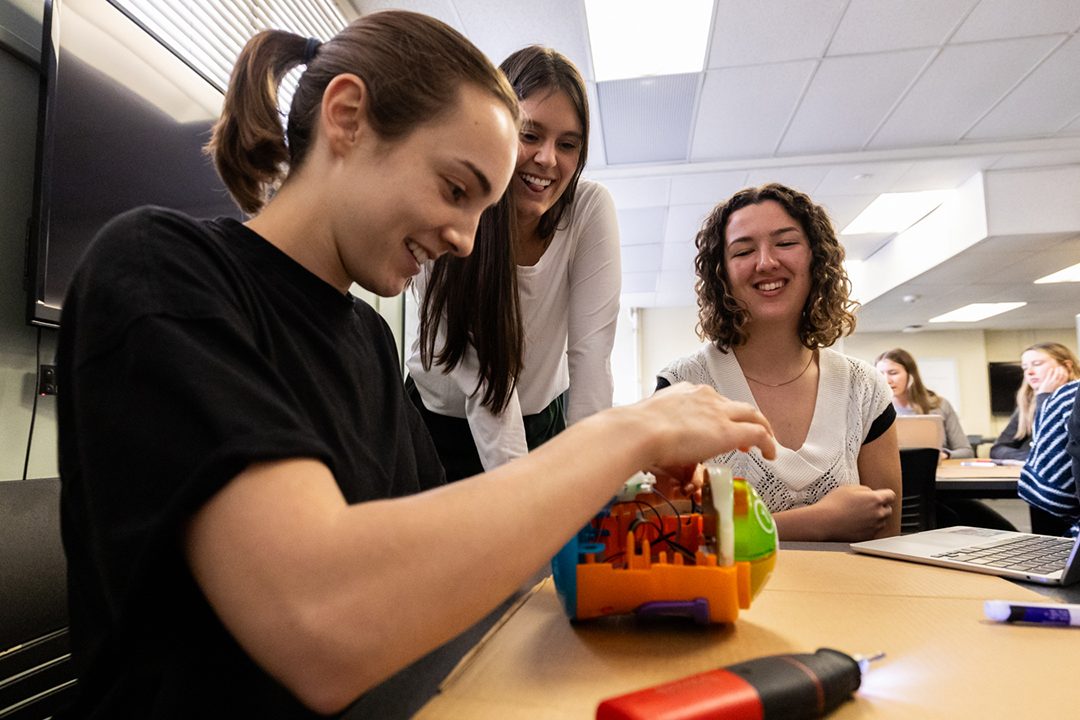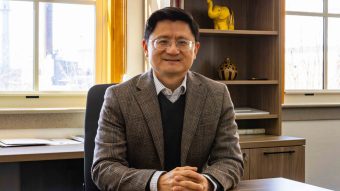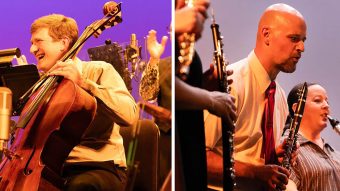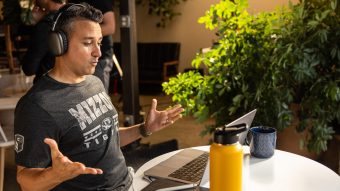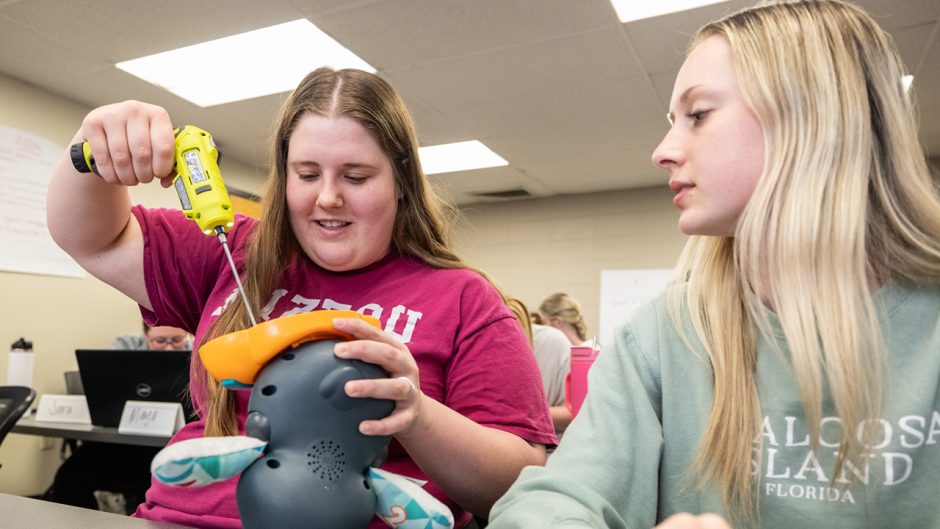
June 30, 2025
Contact: Sara Diedrich, diedrichs@missouri.edu
Photos by Sophia Scheller
When Dana Chole, BS ’11, DPT ’14, and her partners at Switched Adapted Toys had taken their small startup as far as they could, the team of two physical therapists and an entrepreneur knew it was time to grow and establish themselves as a nonprofit — but they didn’t have the resources to make that happen on their own. They had already invested everything they had into their online business, which offers tutorials on how to adapt toys for children with disabilities.
The demand for their services was clear, and they were determined to meet it.
A quick Google search led to an unexpected but ideal resource: the Entrepreneurship Legal Clinic at the University of Missouri School of Law. Here, law students, under the supervision of an experienced licensed attorney, provide legal assistance and support to entrepreneurs and small business owners across Missouri — and, most importantly to Chole and her partners, the services are free of charge.
“We could hardly believe our good fortune,” Chole, an assistant teaching professor at College of Health Sciences, said. “We filled out the online application, and before we knew it, we were contacted by the clinic and were setting up meetings.”
Within six months, Switch Adapted Toys was officially established as a nonprofit. Chole and her partners are now among more than 400 startups and entrepreneurs statewide that the ELC has supported with legal services since Don Seitz, JD ’03 joined as its director in 2019.
Over the past six years, Seitz has pushed to expand its services to clients across the state.
“I wanted to give our students a more real-world experience,” he said. “In practice, lawyers are busy — they juggle multiple clients and must learn to manage heavy workloads. This gives students the chance to not only work directly with clients but also build critical skills like time management and professional communication."
ELC at work
Each semester, eight third-year law students are accepted into the ELC. Working in pairs, the students assist up to 20 clients. While they don’t serve as ongoing legal counsel, the students work with clients on legal issues related to business formation, contracts, intellectual property, regulatory compliance and other relevant areas. Additionally, the clinic integrates a classroom component where students learn about the legal aspects of entrepreneurship and business law.
The ELC works with a wide range of clients — mom-and-pop businesses such as lawn care services, individuals looking to monetize an invention and teams developing tech, like mobile apps or digital platforms.
“We also support nonprofits engaged in meaningful work across the globe — from teaching English to international learners to groups like Dana’s that are redesigning toys for children with special needs,” Seitz said.
Why adapted toys matter
Chole, her husband, Eric, and fellow physical therapist Rachel Hughes founded Switched Adapted Toys in 2018. As practicing physical therapists, Chole and Hughes understood the importance of inclusive play on children’s cognitive and physical development.
“When you’re in the clinic and serving these families, you get to know them,” Chole said. “Families are very vulnerable and transparent with you about some of the struggles they have — and play is a big one for parents. They would say things like, ‘My child can’t play.’ Their child could play, but they can’t play with the toys that are on the shelf. So, we are going to have to adapt the toys.”
For example, toys can be modified by installing an adaptive switch which allows individuals with physical, cognitive and movement-limiting disabilities to use technology and electronic devices.
While adaptive toys are sold online, Chole said they are usually expensive, especially for families already saddled with increased medical costs. The Choles and Hughes discovered that, with a little ingenuity, they could adapt the toys themselves and teach others to do the same. Today, their online resources are helping families and therapists across the globe to adapt toys. They also manufacture and sell 3D-printed adaptive solutions, such as custom switch buttons for toys, games, computers and more.
“Our goal is to help every child reach their full potential. By providing toys that align with both their physical abilities and cognitive development, we create opportunities for growth, joy and confidence,” she said. “It changes how these children view themselves and how the world views them. It’s transformative.”
